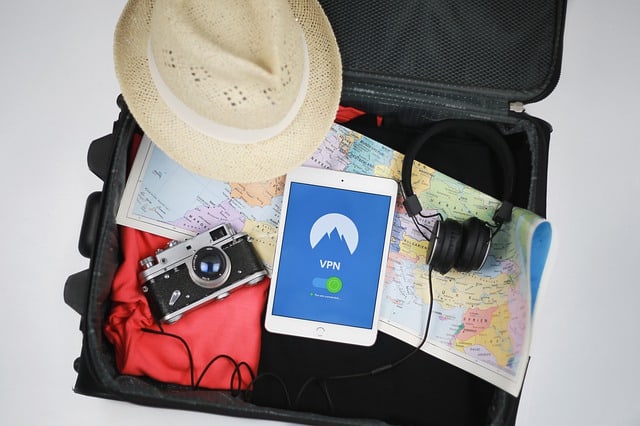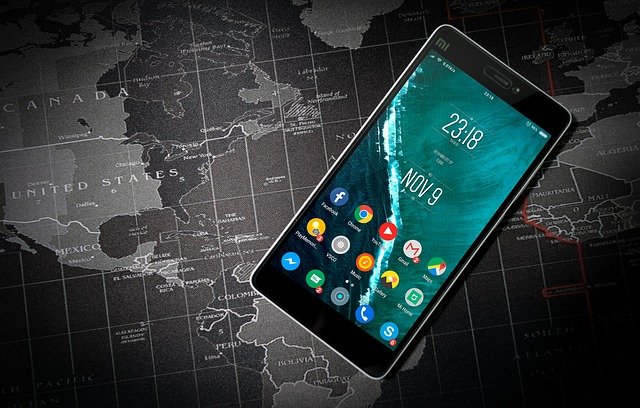8 Tips to protect your data on the road
Somebody once said that the world is a book and those who do not travel read only one. Traveling or seeing places is an integral part of our lives. It’s an essential part of our education as it expands our view of the world. And thanks to modern technology, planning our travels and documenting our experiences has never been easier. Laptops, tablets, and smartphones have all become part of the traveling kit.

While they make traveling a lot more convenient, these gadgets open up a whole new world of risks. The risk of having your data compromised or used against us escalates when we travel. The risk of the technology you use exposing your data varies by country. This article focuses on helping travelers plug the main security gaps when traveling and minimize the risk of compromise wherever they are.
Here are 8 simple yet effective ways to protect your data on the road.
Limit your devices
You don’t need to bring all your devices with you when traveling. Evaluate the devices you need to bring with you before the trip. It goes without saying that reducing the number of devices you travel with lowers the risk of having your privacy breached during your travels. You will find traveling safely a lot easier if you limit smart devices or travel with devices that do not have any private account information on them.
Consider traveling with low end prepaid devices to protect the private information on your smartphone or computer. Depending on which country you are visiting, your electronic devices may be subject to a profound search at the entry point. Traveling with a burner phone or laptop reduces the risk of having your privacy compromised during these searches. You can still go online and make phone calls when traveling, even with burner devices.
Use a VPN

We often use public Wi-Fi hotspots to go online when traveling. When the need for online banking arises, you may be forced to log on using unsecured public Wi-Fi at the airport or the hotel. While the convenience is attractive, the risk of a data breach, eavesdropping, etc. is high when using an unsecured Wi-Fi hotspot. You need to take measures to ensure that your online activities stay private on public Wi-Fi.
The most effective way to ensure online privacy on public Wi-Fi networks is by using a VPN. Short for a Virtual Private Network, a VPN encrypts your data and makes it almost impossible for cybercriminals to peep into your online activity.
When you have this tool, you can use free Wi-Fi hotspots without the risk of someone stealing your data or spying on your traffic. That’s why you need to make sure that you download a VPN app to protect your privacy before you hit the road.
Don’t keep valuables in your car
The chances of losing valuable items such as your phone, laptop, or digital camera are high when traveling in a foreign country. Use online resources to know the risk of harm or theft in places you are traveling to ahead of your trip. Simple measures, such as leaving valuable items in your hotel to prevent theft, can go a long way towards keeping these items safe. Keeping valuable items in your car is never a good idea.
Items such as loose change, planners, mobile phones, and computers in your car will attract the attention of sticky-fingered individuals. It’s just too tempting and will lead to your car getting broken into at night or even during the day. It doesn’t even matter what country you are in; if you are not careful with your belongings, someone will steal them.
Delete sensitive apps or information

Digital searches have increased significantly over the past couple of decades. Many people report having their devices searched when traveling internationally and entering or reentering their country of origin. Officials at the entry point may ask visitors to unlock their devices, provide passwords, or even disclose their social media. Agents can escalate the encounter, which could easily lead to your devices’ confiscation if you decline.
Consider getting rid of apps or sensitive information such as work documents that you don’t want to be accessed, even if it’s just temporarily. Deleting sensitive information and apps you don’t want to be accessed during digital searches will help you maintain privacy throughout your travels. Since the vast majority of apps these days require a login, you can always reinstall them with relative ease when you get back home from your trip.
Be sure to logout
The internet is a vital resource when you are traveling abroad. Not only does it provide access to important information about your trips, such as weather and the condition of the roads ahead, but it also provides loads of entertainment for the journey. Access to the internet may be a challenge, depending on what part of the world you are traveling to. Sometimes, you’ll have to hop into one of those internet cafes to keep up with the outside world.
If you are accessing the internet at an internet cafe or hotel business center, you need to make sure that you log out of your email or social media account when you are done. If you don’t, someone using the same computer after you may hijack your accounts or try to impersonate you. Someone with access to your email or social media accounts can do a lot of damage before you manage to shut it down.
Back up your data
Back up your files in a safe place before you embark on your travels. Copy all your photos, documents, and other files into a portable drive that remains at home when you travel and also create a cloud backup. By having a proper backup, you can save yourself a lot of stress if your devices are compromised or stolen during your trip. Creating a back-up when traveling doesn’t just apply to digital files.
It’s also a good idea to make copies of all the important documents, including your passport, when traveling. It can make your life a whole lot easier if something happens and you lose some of your documents. Store the originals and the copies separately, and in the event of theft, you will have a copy of important documents on you. You will be able to enjoy your travels more when you have these backups.

Did you know that some countries, including the United States, can restrict entry based on anything you post on social media? Refrain from engaging in controversial political discussions prior to your travel to such countries to be safe. You can also set up fake social media accounts to present at the entry point in countries that require this type of access.
Get a travel router
Free Wi-Fi hotspots in airports, convention centers, and coffee shops make it easy to access the internet while traveling. However, public Wi-Fi networks are not safe. There’s a huge risk of data theft when using unsecured Wi-Fi. For constant access to secure, high-speed internet when traveling, consider getting a travel router. A travel router is a compact little device that plugs into a wired ethernet connection to provide Wi-Fi.
A travel router can solve most of your connection problems on the go. Travel routers are designed for people on the move and need to connect to the web without a power source. A travel router provides extra security for your internet connections when traveling by creating an encrypted internet connection out of an unsecured Wi-Fi hotspot. This device can also be used as a Wi-Fi access point or range extender.
In a nutshell
Travelling can be a lot of fun. However, traveling may also escalate the risk of privacy violation. Putting these tips into use while traveling will reduce the risk of a privacy breach. It wouldn’t hurt to apply some of these measures even when you are not traveling.